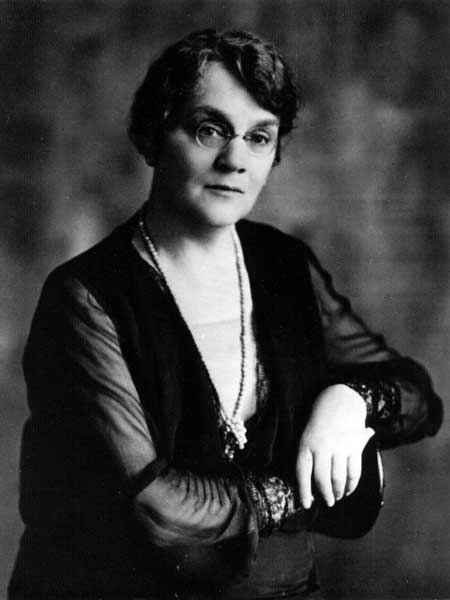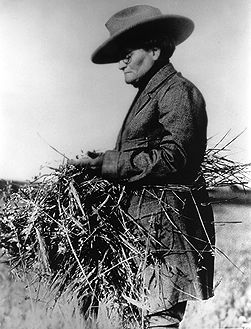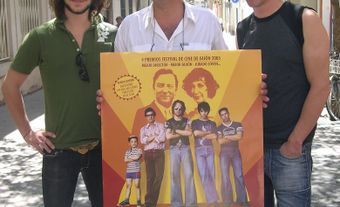The “mock parliament” was a particularly Canadian contribution to suffrage drama and suffrage campaigns. A type of agitprop — art with explicit political messaging — such productions were written to raise money and generate sympathy for women’s suffrage. Many mock parliaments were staged during the late 19th and early 20th centuries, with at least seven in Ontario, two in British Columbia and four in Manitoba. The most famous was staged on 28 January 1914 at the Walker Theatre in Winnipeg, exactly two years before women won the right to vote in that province. (See also Women’s Suffrage: Timeline.)

Background
Though Britain and the United States produced similar works, Canadianmockparliaments were collective creations. Devised by the women who performed in them, these productions bore the stamp of the places where they were created. There were at least seven mock parliaments in Ontario, including the Toronto Mock Parliament of 18 February 1896 staged at the Horticultural Gardens (later named Allan Gardens). There were two in British Columbia, and four in Manitoba, including the very first mock parliament, performed in Winnipeg at the Bijou Opera House on 9 February 1893.
Like those it inspired, the first mock parliament was the work of the Woman’s Christian Temperance Union (WCTU), which was the earliest supporter of women’s suffrage in Western Canada. The production showcased some of the most distinguished activists of the movement, including: E. Cora Hind, world-renowned journalist, agriculturalist and women’s rights advocate; Dr. Amelia Yeomans, one of the city’s first female physicians; Arminda Myrtal Blakely, president of the Manitoba WCTU; A.J. McClung, inspiration to and future mother-in-law of Nellie McClung. As a way of promoting the event, the parliament was preceded by an appeal to the Manitoba legislature, in which Yeomans requested an adjournment so that MLAs might attend the Mock Parliament. Twenty members of the house watched the performance.
By the time it was performed at the Walker Theatre in 1914, the mock parliament was a genre with an almost 21-year tradition of entertaining audiences and winning hearts and minds for the suffrage cause.This time, it was conceived and sponsored by members of the Manitoba Political Equality League (1912–1916), many of whom were also members of the Canadian Women’s Press Club. Once again, the cast assembled some of the highest profile suffragists, including Francis Marion Beynon and her sister, journalist and social reformer Lillian Beynon Thomas, Nellie McClung and E. Cora Hind. It also featured Harriet Walker, a former actress and Winnipeg’s first female theatre critic. She was also married to the theatre’s owner. Walker’s daughter Ruth and McClung’s daughter Florence acted as pages (young parliamentary assistants).

Impetus
The 1914 mock parliament staged at the Walker Theatre was proposed by Lillian Beynon Thomas, who had heard of a similar play entitled A Session of the Provincial Legislature in 2014 AD put on by the University Women’s Club in Vancouver while she was visiting there. The Club had made a theatrical night of it, pairing their play with the popular British suffrage play How the Vote Was Won by Cicely Hamilton and Christopher St. John. Within a month of her return from Vancouver, the Manitoba Political Equality League organized its own mock parliament. Like the 1893 version at the Bijou Opera House, it coincided with a visit to the legislature. It was the League’s first formal appeal for women’s provincial suffrage and hundreds of men and women from a variety of organizations were on-hand to urge the premier to do the right thing.
Nellie McClung was to read the “closing appeal” to the Legislative Assembly on 27 January and take the part of the premier in the mock parliament the following day. The Manitoba Free Press called her performance at the legislature “eloquent, logical and dramatic,” but McClung found herself in the odd position of wanting Premier Sir Rodmond Roblin to refuse women’s suffrage. “What would be the fate of our play if Sir Rodmond were wise enough to give us a favorable reply?” she wrote in her autobiography The Stream Runs Fast (1945). As she tells the story:
[Roblin] was at his foamy best [and] I wanted to make notes. I did not want to forget his exact phrases, but I know I must not write a word, so I just sat with every fibre of my brain stretched to absorb his diction and the exact tones of his voice. He was making the speech that I would make in the play in less than thirty-six hours. O, the delight of that moment!
Mock Parliament, 1914
Put on by the Manitoba Political Equality League (MPEL) on 28 January 1914, A Women’s Parliament starred Nellie McClung in the role of premier and was staged at the Walker Theatre, the flagship venue of C.P. Walker’s Red River Valley Touring Circuit in Winnipeg. (The performance was staged once more in Winnipeg and later in Brandon.)
The 1914 mock parliament was the centrepiece in an evening of performances. At least two members of the Manitoba opposition ducked out of a civic dinner to attend. The play was preceded by “suffragette songs” by the Assiniboine Quartette and a rendition of How the Vote Was Won. Altered in its nomenclature to reflect Winnipeg place names, and directed by Harriet Walker, How the Vote Was Won delighted the audience and warmed them up for the main event.
In McClung’s fictional rendition of the performance in the novel Purple Springs (1921) — which she says is “substantially a matter of history” — the curtain rises, and the premier appears before the audience to assure them:
this is not the sort of Parliament we think should exist, [...] this is the sort of parliament we have at the present time — one sex making all the laws. We have a Parliament of women tonight, instead of men, just to show you how it looks from the other side.People seem to see a joke better sometimes when it is turned around.
Like all such plays, the Parliament staged a recognizable legislature. Its set was staid and simple and was comprised of two sections of seating facing each another: one represented the provincial government and the other the official opposition. The speaker was perched on a podium upstage and between the sections. Uniformed pages fetched water for the members, but were also there to “distribute bills and call the members to the telephone.” The members themselves, dressed in black cloaks, read newspapers and their “heckling [was] constant and clever.”
The Government members […] read their papers, one of the Cabinet Ministers tatted, some of the younger members powdered their noses, many ate chocolates. Those who listened, did so to sneer at the honorable member from Mountain, insinuating she took this stand so she might stand well with the men. This brought a hearty laugh, and a great pounding of the desks.
Satirical, ironic and recognizably parodic, the action of the play moved through a parliamentary agenda and conformed to “the ‘rules of the House.” It began with “routine proceedings:” a petition was presented by the “Society for the Prevention of Ugliness [that] prayed that men wearing scarlet neckties, six inch collars and squeaky shoes be not allowed to enter any public building.” In an age of women’s dress reform, this petition satirized men who felt entitled to judge appropriate women’s attire. A similar critique had been made in the 1896 mock parliament in Toronto, in which men’s garments were also under discussion.
The political agenda of the educated, middle-class women and men who belonged to the MPEL included property reform. As such, a bill was proposed in A Women’s Parliament to “confer dower rights on married men,” a reversal of women’s lack of a legal claim to her husband’s property. In a similar vein, Lillian Beynon Thomas proposed a bill to “confer upon fathers the rights of equal guardianship.”
The main event of the Parliament was McClung’s parody of Sir Rodmond Roblin’s speech a day earlier. Acting in the role of premier, McClung turned down a deputation of men, led by R.C. Skinner, who came to plead for the right to vote. Many assumptions about how she mimicked his rocking stance, his gestures and his bombastic rhetorical style are based on the fictional rendition of the play in Purple Springs. What we know for sure, however, is that the play sent a crowd, largely familiar with Roblin’s speech and McClung’s appeal to the legislature of the day before, into gales of laughter. Roblin had declared that “in the whole of his political experience he had never unearthed the slightest trace of corruption” and McClung satirically countered that “you may be sure, if anything of that kind had been going on, I should have been in on it.” Roblin linked women’s suffrage in the United States with the high rate of divorce there and offered that “woman suffrage would break up the home” in Manitoba. McClung retaliated with: “politics unsettle men, and unsettled men mean unsettled bills — broken furniture, broken vows and — divorce.”
McClung’s close rendering of Roblin’s paternalism brought down the house. The seriousness of the cause for which the play had been mounted, however, could never have been far from anyone’s mind; on sale were “pamphlets dealing the various aspects of woman suffrage,” and over the course of the evening a petition circulated that “call[ed] upon the government to extend the franchise to women.”
Impact and Significance
On 28 January 1916, Manitoba became the first Canadian province to extend the vote to women. Many actions on the part of western Canadian feminists contributed to Manitoba’s success, but none had a greater impact than the performance of the suffrage comedy. At 25 and 50 cents a ticket, A Women’s Parliament played to full houses, twice in Winnipeg and once in Brandon, and made enough money to finance the cash-starved provincial suffrage campaign. The production also helped to overturn the Conservative government of Sir Rodmond Roblin (1900–1915) and sweep Tobias Crawford Norris to power (1915–1922).
Manitoba theatre historian Reg Skene called the 1914 mock parliament one of the most momentous events to ever fill the 1,800-seat Walker Theatre. It is remembered as the single most noteworthy theatrical event of the Canadian suffrage campaign.

 Share on Facebook
Share on Facebook Share on X
Share on X Share by Email
Share by Email Share on Google Classroom
Share on Google Classroom



